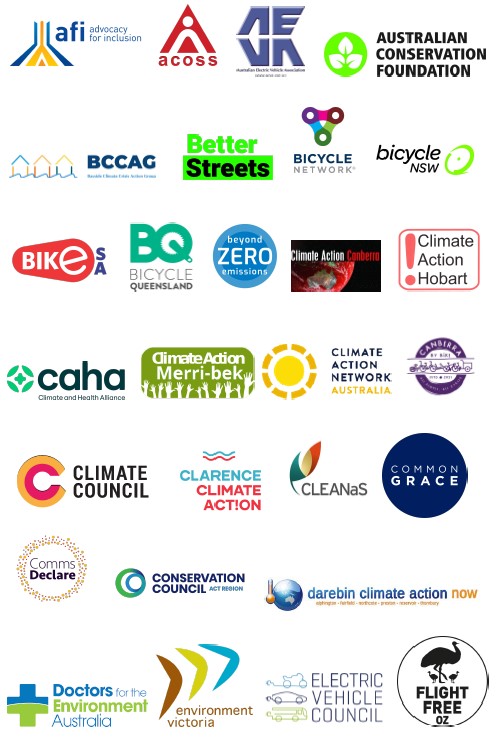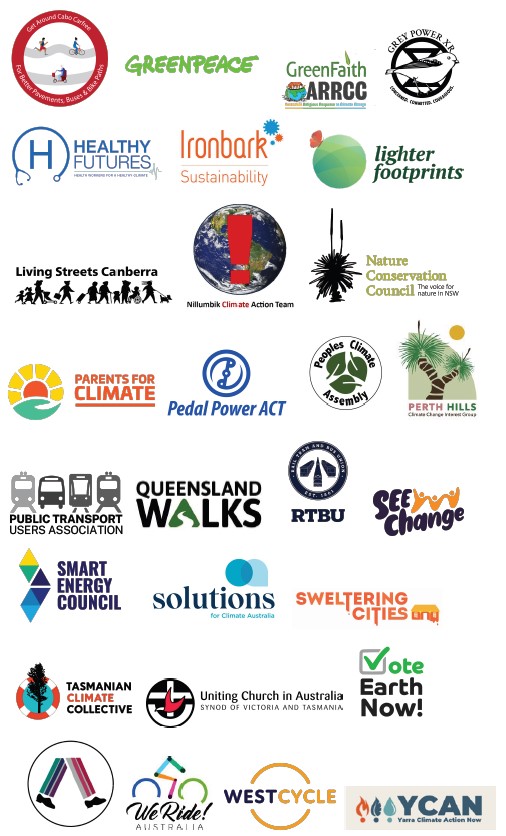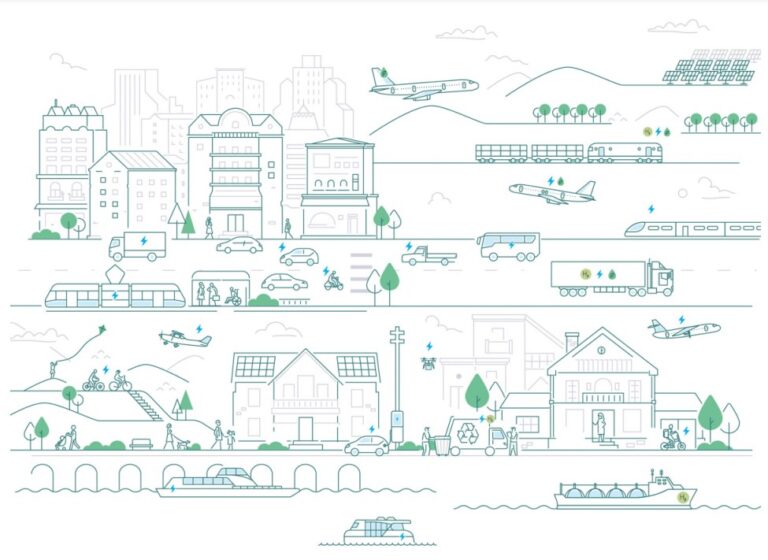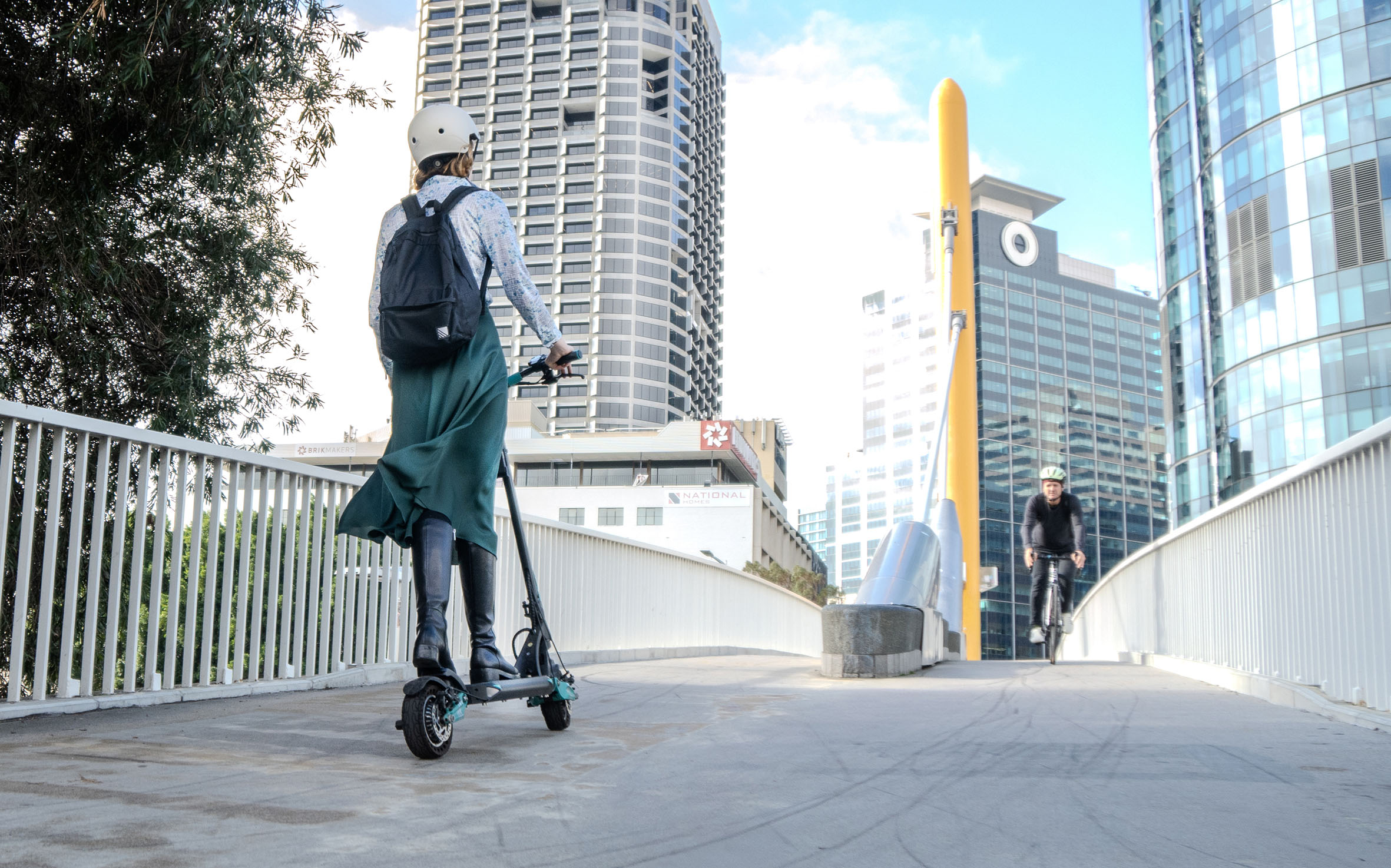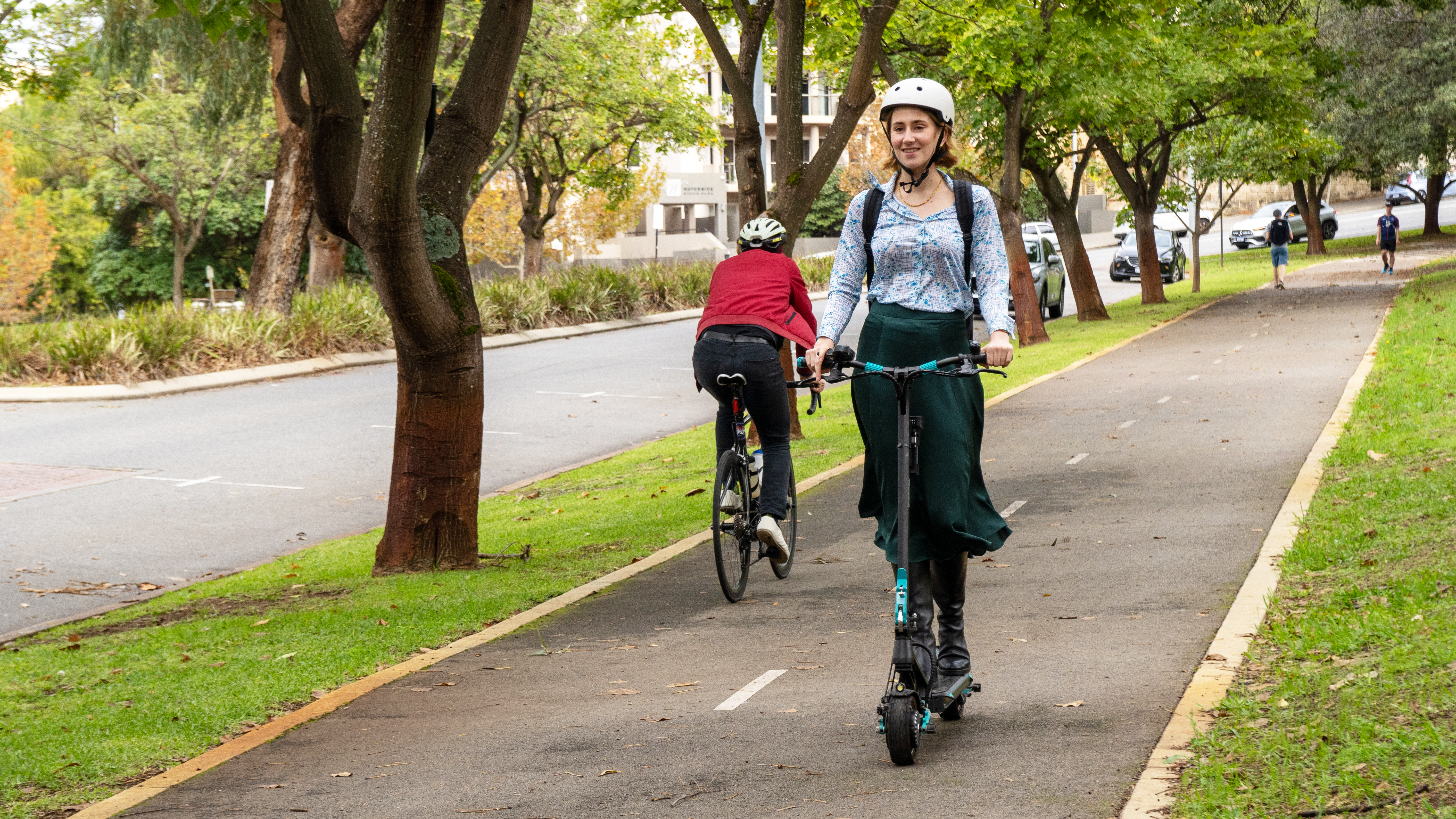If the Australian government is serious about decarbonising the transport sector, it must quickly establish strong and effective targets, 56 groups representing 2.3 million Australians have urged in a just-published joint statement.
Responding to the Government’s ‘Transport and Infrastructure Net Zero Consultation Roadmap’ the groups said without immediate target-based action, transport would be Australia’s highest emitting carbon sector in just 5-6 years.
The groups, including WestCycle and peak cycling bodies in South Australia, Victoria, NSW and Queensland, urged the government to revise its net zero carbon emission target from 2050 to 2035.
“Reaching net zero by 2050 is too late and not aligned with climate science,” urged the groups spanning climate, health, union, religious, environment and social services.
“We therefore strongly encourage the Government to set a science-based target for cutting transport emissions in line with the Paris Agreement goal of 1.5˚C, as this is essential for accountability.”
Measures included setting targets for the 100% shift to zero emission vehicles (and subsidies); reducing unnecessary travel (about two thirds of car trips in Australian cities are under 5km); shifting to cleaner, more efficient transport modes like public and active transport (including cycling and micromobility).
Climateworks Centre data shows zero-emission vehicles would need to achieve 73% of new light vehicle sales like cars, utes and SUVs by 2030 to keep transport emissions aligned to limiting warming to 1.5 degrees Celsius.
The benefits of transforming transport
The groups backed the consultation’s, “emphasis on inclusivity and equity, maximising emissions reduction, minimising cost to the community, drawing on existing evidence-based solutions, and creating new job opportunities for workers in the clean transport sector.”
“A decarbonised transport sector has the added co-benefit of improved health and wellbeing outcomes – reducing the strain on the healthcare system, by addressing traffic-related air pollution and the estimated 11,000 deaths a year associated with it, as well as physical inactivity exacerbated by car dependency,” they said.
“It is also an opportunity to reduce the impact of transport on the cost of living, and tackle road trauma and congestion.”
“The roadmap and action plan should specify how all levels of government will collaborate on legislation, planning, design and delivery of transport and infrastructure and investment to overcome current barriers, as well as collaboration with industry stakeholders and the community,” the groups stated.
The joint statement’s other backers included the Australian Conservation Foundation, GreenPeace, Parents for Climate, the Uniting Church of Australia and the Climate Action Network Australia.
With Radio 6PR, hear WestCycle’s Rachel Pemberton discussing active transport’s enormous potential in achieving decarbonisation – not to mention cost reduction, community connection and physical and mental health! [From 1hr:32mins:50secs in the recording]
RTRFM 92.1 also hosted Rachel discussing these issues [From 1hr:31mins]
